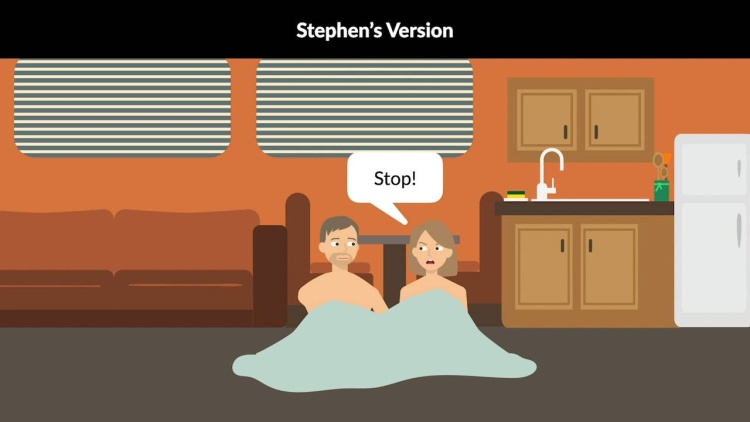Stephens v. Miller
United States Court of Appeals for the Seventh Circuit
13 F.3d 998 (1994)
- Written by Peggy Chen, JD
Facts
Lonnie Stephens (defendant) was charged with rape, a charge he denied. The victim and Stephens told two different stories of the events. In the victim’s story, Stephens, a casual acquaintance of the victim, was dropped off at the victim’s trailer by Stephens’ friend. The victim was sleeping on the couch while other family members slept in the bedrooms. The victim awoke and found Stephens standing inside the door. Stephens made advances at the victim and she called out for her sister. Stephen continued his advances, and eventually, threw the victim down on the couch and attempted to rape her. The victim pushed Stephens off her and ran screaming into the bedroom. Stephens ran away to a nearby friends’ house and told them he had been at a convenience store. He also told his friend who had dropped him off at the victim’s trailer to say that he had left him at the convenience store. Stephens’ story was that the victim invited him in after he was dropped off at her trailer. One thing led to another and the victim and Stephens had consensual sex. Stephens claimed that at one point during sex, he said “Don’t you like it like this [doggy style]? Tim Hall said you did.” Stephens also claimed that he said something to the victim about “switching partners.” According to Stephens, the victim became very upset, told Stephens to leave (which he did), and then fabricated an attempted rape story as retaliation. The trial court did not permit Stephens to testify as to the nature of the statements he made to the victim because they violated Indiana’s rape shield statute. It only permitted him to testify that he made statements to the victim that angered her and caused her to fabricate the attempted rape story. Stephens was convicted. The Indiana Supreme Court affirmed. Stephens petitioned the federal district court for habeas corpus, and was denied. Stephens appealed the denial of habeas corpus. Stephens argued that the limitation on his right to testify as to what he said to the victim violated his constitutional right to testify in his own defense and that the evidentiary doctrine of res gestae means that he had the right to present evidence of happenings near in time and place to the alleged offense which complete the story of the crime.
Rule of Law
Issue
Holding and Reasoning (Bauer, J.)
Dissent (Cummings, J.)
What to do next…
Here's why 907,000 law students have relied on our case briefs:
- Written by law professors and practitioners, not other law students. 47,100 briefs, keyed to 996 casebooks. Top-notch customer support.
- The right amount of information, includes the facts, issues, rule of law, holding and reasoning, and any concurrences and dissents.
- Access in your classes, works on your mobile and tablet. Massive library of related video lessons and high quality multiple-choice questions.
- Easy to use, uniform format for every case brief. Written in plain English, not in legalese. Our briefs summarize and simplify; they don’t just repeat the court’s language.





